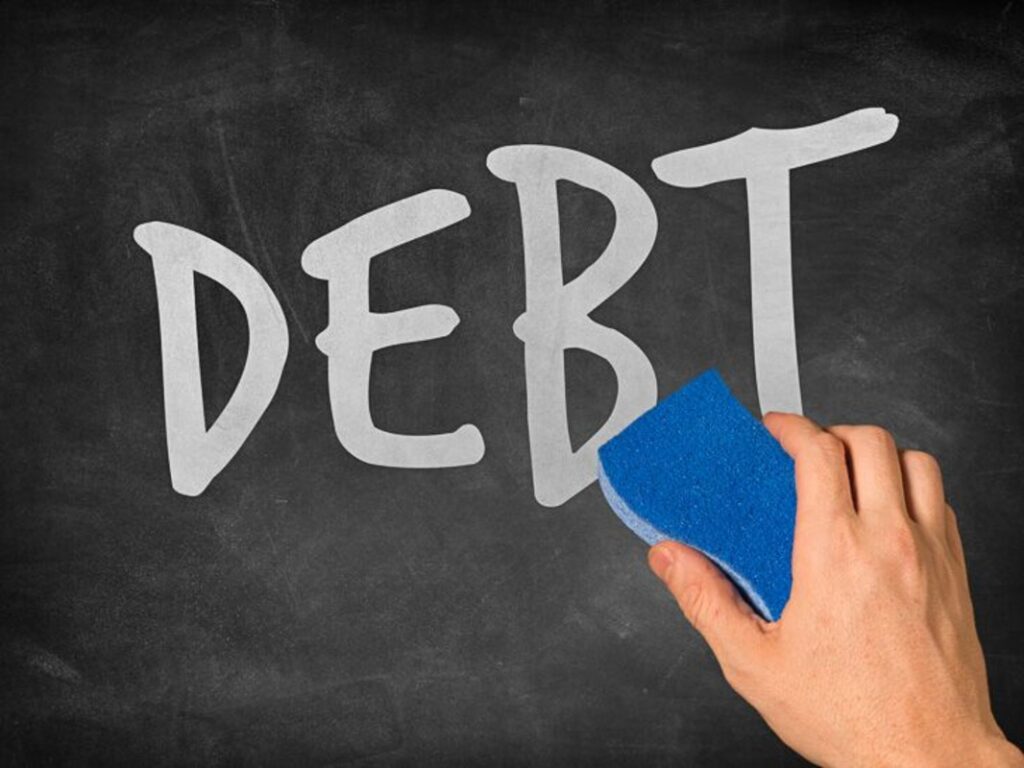Running a random poll would probably reveal that living a debt-free life is a chief goal of many people. Unfortunately, these same folks find that attaining that financial status seems elusive. Debts come in different flavors: student loans, car loans, credit car loans, medical debts, etcetera.
However, their common denominator is that most of these debts are accompanied by financial stress. We say ‘most’ because not all debts are bad; as a matter of fact, it is possible to use debt to your advantage. So, here are five strategies to help get out and steer clear of bad debts.

1. Establish Clear-Cut Debt Free Goals
The goal in question here does not mean writing up an amount in your journal to pay off within a specific time frame. Instead, it means personalizing the intent of becoming debt-free. Did it come up on your radar thanks to prompts from some financial adviser, or is it just a random consideration? In summary, for folks considering walking down this path, it is essential to ensure it fits into your financial roadmap; if not, kindly abort. Later on, we’ll highlight some drawbacks of being debt-free.
2. Take an Inventory of All Your Debts
Now, here’s the point where setting up a goalpost becomes necessary. Going to a shooting without targets is pointless, so after deciding to become debt-free, penning down all standing debts becomes paramount. It takes an individual who knows their exact debt status to initiate a debt knockoff plan that would work. Besides, the knowledge of your debt-to-income ratio will help estimate how long it would take to pay off all outstanding debt, either conveniently or aggressively.
3. Identify the Most Appropriate Payoff Method
There are several debt payoff plans that you could follow; the most popular ones are discussed below.
- Debt Relief: National debts popularized this payoff plan. International lenders, like the IMF and World Bank, often offer countries debt relief, which sometimes involves a renegotiation of the repayment plan, reduction of the payable amount, or an outright write-off of the standing loan. This analogy may be applicable to personal loans and debts. Student loan forgiveness schemes are examples of state-sponsored debt relief. However, it is possible to approach your bank or lender for some relief on an existing debt.
- Debt Consolidation: This debt payment plan helps rapidly pay off all your debts. Here’s how it works. All high-interest debts are compounded into a single monthly payment, albeit at a lower interest rate. Before long, the most troublesome debts are off the plate; you want to eat that frog.
- Debt Avalanche: Unlike the debt consolidation plan, which combines all high-interest debts into a single repayment plan, the debt avalanche method goes one step at a time. This method lines up debts according to interest rates. It pays off debts one at a time, starting with those with the highest interest rate.
- Debt Snowball: This debt repayment plan involves starting from the bottom rung. Debts with the lowest balance are all compounded and settled in a fell swoop. Subsequently, that amount is added to the minimum balance on a debt account with a higher interest rate. The payments keep snowballing, and your expenses easily get familiar with the deductions.
4. Get Dynamic With Budgeting
By picking a budgeting method/plan that works best for you. No one budgeting method would fit the financial habits of every person reading this, which is why you need to develop a budgeting plan and morph as the finances grow.
However, some popular budgeting methods that many people have found helpful are the 50-30-20 method, the envelope system, and zero-based budgeting. The prime goal is to track your money flow. It often surprises folks how much they spend on irrelevant products and experiences after they start budgeting. To make budgeting easy, there are several mobile apps that help users maintain a healthy relationship with money.
Finally, as part of your budgeting, make it a habit to set aside a portion of your income to build an emergency fund. It is usually advisable to start with something small and then increase it over time.
5. Don’t Get Emotional About Your Debts
It is easy to get all beat up about the indebtedness brouhaha. Now, don’t let it get to you. It is perfectly okay to be in debt, but not managing the situation well may amount to disaster. Next time the thought of being in debt wants to get you down, a positive influence would be to remind yourself that some of the most successful people in the world were, and some still are, debtors.
ALSO READ: Top Ten U.S. States With the Highest Student Loan Debt
Benefits of Being Debt-Free
There are many benefits to living a debt-free life, so much so that the list is inexhaustible. However, the caveat is that make sure you’re financially liquid to bankroll all your personal and capital-intensive projects. Here are some advantages of living debt-free.

- More income gets freed up for progressive purposes.
- Makes you a spec for landlords and employers.
- Financial risks are dampened in the absence of debt; the worst-case scenario is to pick up from ground zero, not the trenches.
- Possibility of an early retirement.
- Mental and physical health are not always in overdrive.
ALSO READ: Average Credit Card Debt Climbs to $6,329: ‘People Are Stretched,’ Expert Warns
Disadvantages of Being Debt-Free
Living a debt-free life can be beneficial for the average person. However, as good as the concept of zero debt may seem, it may have some downsides. For example, living on credit may sometimes be the best bet, particularly if the cash flow is not there to help bare subsistence. In such a case, refusing credit would be tantamount to being debt-free but broke.

Some major drawbacks of living a debt-free life are as follows:
Credit Invisibility
When you wipe your debt slate clean, your credit score takes a real beating. That plate should be greasy, not piled up with a load of bad debts, but just greasy. Even after clearing out all debt, it is advisable to maintain a steady stream of credit, which can be paid off before running due, as they improve your credit score and loan eligibility.
Inevitable Financial Sacrifices
After knocking off all debts, maintaining this streak can be pretty tricky. Some major financial milestones are impossible to attain without good debts.
Once again, weigh the odds and be sure that living a debt-free lifestyle is really for you before embarking on that journey.

